Section Navigation
John Muir Institute of the Environment
Members
Department: USDA Forest Service, Pacific Southwest Research Station
E-mail: mbusse@fs.fed.us
Phone: 530-759-1721
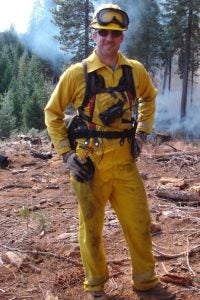 Department: USDA Forest Service, Pacific Southwest Research Station
Department: USDA Forest Service, Pacific Southwest Research Station
E-mail: bmcollins@fs.fed.us
Phone: 530-759-1701
Research: My research interests involve characterizing effects of fire and fuels treatments on forests. I am interested in these characterizations at both the stand and landscape levels. Active research areas include: 1) stand development/recovery following fuel reduction treatments and wildfires, 2) modeled effects of landscape fuel treatment networks, 3) fire severity patterns and interactions among managed wildfires in long-term natural fire areas, and 4) characterizing variability in forests under more natural fire regimes. My research intends to provide meaningful information to managers interested in improving forest resiliency and incorporating more natural fire-vegetation dynamics across landscapes.
E-mail: trgordon@ucdavis.edu
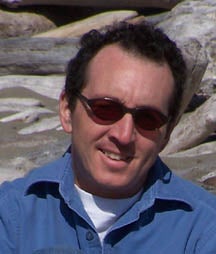 Department: Institute of Forest Genetics
Department: Institute of Forest Genetics
E-mail: agroover@fs.fed.us
Phone: 530-759-1738
Website: https://www.fs.fed.us/psw/programs/cb/staff/agroover/
Research: My lab uses molecular genetic and genomic tools to understand the biological processes regulating secondary growth and wood formation. We use the model genus, Populus, for most of our research.
Department: Land, Air and Water Resources
E-mail: wrhorwath@ucdavis.edu
Phone: 530-754-6029
Website: http://horwathlab.lawr.ucdavis.edu/
Research: My interest is in the biogeochemistry of agricultural, forest and wetland systems. I am particularly interested soil organic matter dynamics including controls on greenhouse gas emissions, dissolved organic carbon, water use efficiency in agriculture and forests and long-term soil sustainability. I use stable isotopes to probe soil processes and plant water relations. My work transcends the continuum from the microbial to plant scale. My goal is to understand the factors affecting ecosystem sustainability in light of the influence of management, disturbance and climate change.
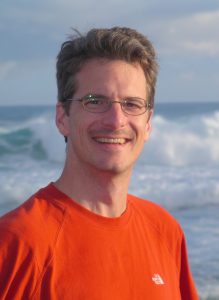 Department: Plant Sciences
Department: Plant Sciences
E-mail: amlatimer@ucdavis.edu
Phone: 530-752-0896
Website: http://www.plantsciences.ucdavis.edu/plantsciences_faculty/latimer/
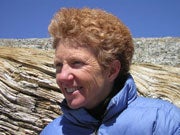 Department: USDA, Forest Service, Pacific Southwest Research Station
Department: USDA, Forest Service, Pacific Southwest Research Station
E-mail: cmillar@fs.fed.us
Phone: 510-559-6435
Website: http://www.fs.fed.us/psw/programs/efh/staff/millar/
Research: My research interests fall under the general heading of mountain climate science. With training in forest population genetics, I focus now on responses of high-elevation forest trees to prehistoric and ongoing climate change. I also study the effects of climate change on small lagomorphs (mammals), in particular American pika, the response of alpine plants to climate change (I chair the NA GLORIA chapter), periglacial processes in particular rock glaciers and frozen-ground processes. My study region is the eastern Sierra Nevada and Great Basin mountains. I also focus strongly on science-management issues, in particular the role of science in developing climate-adaptation strategies and operational practices for forest and land management on public lands in western NA.
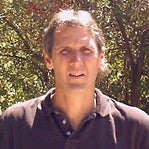 Department: Plant Sciences
Department: Plant Sciences
E-mail: dbneale@ucdavis.edu
Phone: 530-754-8413
Website: http://dendrome.ucdavis.edu/NealeLab/
Research: Genomics of complex traits, marker breeding and molecular basis of adaptation.
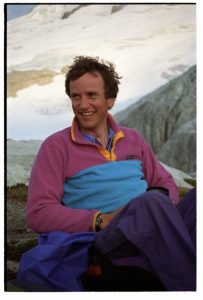 Department: Plant Sciences
Department: Plant Sciences
E-mail: mpnorth@ucdavis.edu
Phone: 530-754-7398
Website: http://northlab.faculty.ucdavis.edu/
Research: I focus on how disturbance effects on forest ecosystem structure, function, and composition. I’m particularly interested in restoration of western conifer forests. I also work on carbon dynamics (storage and emissions) of forests in fire-prone ecosystems.
Department: Plant Pathology
E-mail: dmrizzo@ucdavis.edu
Phone: 530-754-9255
Website: http://plantpathology.ucdavis.edu/faculty/rizzo/lab/homepage.html
Research: Ecology and management of forest tree diseases. Current focus is on Sudden Oak Death (SOD)in CA coastal forests and diseases of conifers in the the Sierra Nevada Mountains and other interior mountain ranges. These projects are also linked to forest management including the role of fire and forest thinning.
Department: Environmental Science and Policy
E-mail: hdsafford@ucdavis.edu
Phone: 530-219-0898
Website: https://saffordlab.wordpress.com/
Research: Science application to applied forest management; disturbance (esp. fire) ecology; biogeography; conservation biology
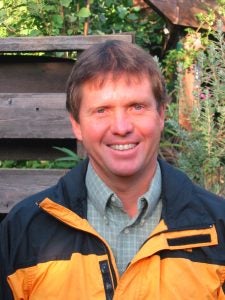 Department: Environmental Science & Policy
Department: Environmental Science & Policy
E-mail: mwschwartz@ucdavis.edu
Phone: 530-752-0671
Website: http://www.des.ucdavis.edu/faculty/mschwartz/schwartz.html
Research: Climate change as it relates to Forest species distribution. I am also concerned with indirect effects of global change on forests, such as changed fire frequencies and changed fire impacts. Most of my work has been with eastern forests and changing species distributions. Most of my work relates to the conservation of biological diversity.
Department: USDA FS PSW/Entomology Affiliate
E-mail: sjseybold@gmail.com
Phone: 530-219-8717
Website: http://ucanr.org/sites/entomology/Faculty/Steven_J_Seybold/
Research: Chemical ecology of forest insects with a focus on bark beetles and woodborers. Use of semiochemicals to detect and manage invasive forest insect species.
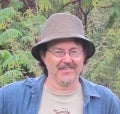 Department: Environmental Science and Policy
Department: Environmental Science and Policy
E-mail: jhthorne@ucdavis.edu
Phone: 530-752-4389
Website: http://ice.ucdavis.edu/people/jhthorne
Research: Current Projects Climate Change Vulnerability Assessment for California Energy Commission. I serve as a landscape ecologist, modeler and data coordinator for a multi-investigator effort to improve projections of vulnerability to California across multiple sectors including agriculture, water availability, fire, and biodiversity. My group is producing downscaled historic and future climates, urban growth models, and a dynamic vegetation model output. Overall project is for 18 months and $4M. Resource Management Under Uncertainty, US National Parks. I am a GIS analyst and landscape ecologist in an effort to assess biological and ecosystem vulnerability to climate change in Sequoia and Kings Canyon National Parks. Proactive vulnerability assessments, and development of conservation management strategies is a new area of research for the US National Parks, which is grappling with whether it is possible to increase biological resilience to climate change, and what management strategies might be required. US Forest Service, International Branch. I developed and teach an annual 3 week curriculum for selected 24 international mid-career forest and resource management professionals. Course locations include Washington, DC, UC Davis, and field locations throughout California. Participants are US AID, Embassy adjuncts and mangers in NGOs. I have a collaboration developed under this program to develop climate monitoring and management capacity for eastern Himalayan countries. Human-Environment Interactions. I study human impacts on natural systems, with the objective of identifying sustainable designs for human-environment interactions. We use an urban growth model to project patterns of new settlements according to various policy scenarios, and to evaluate how the footprint of future growth may impact habitats and wildlife. We also developed biologically relevant measures of landscape fragmentation for California (effective mesh size), and China. I direct a monitoring program assessing wildlife use of unimproved highway underpasses and wildlife road kill along highways on California’s central coast. This includes camera installations, track plates and tracking. Korean Initiative. I advise faculty at Seoul National University and the National Inventory and Environmental Research Institute (Korean agency) on a three part effort: to assess the success of a reintroduction program for Asiatic Black Bear; to quantify the impacts of roads on wildlife through landscape scale monitoring and experiment; and to quantify the differences in spatial and taxonomic detail obtained through three independent national scale bioinventories. Integration of Regional Conservation Designs with Regional Mitigation Needs -California Department of Transportation & Department of Water Resources. I am lead ecologist on projects to develop state-wide, regional, and local biological and ecological impact assessment capacity. We conduct advanced impact projections of funded road and waterway construction projects. This early quantification of area of habitat impacted permits earlier, more cost effective and more biologically effective biological offsets. We use regional conservation objectives (the “greenprint”- including locations of endangered species, identified wildlife corridors, etc) as a mask within which to seek suitable biological offsets. Historical and Projected Ecology. I am interested in the impacts of climate change to human and biological communities, and use several tools to assess and predict change: historical and contemporary data, and modeled future projections. California historical data include 100,000 km2 of historic vegetation maps (1930s) and > 10,000 historic vegetation plots. When compared to over 20,000 contemporary vegetation plots and maps, shifts in species ranges and forest structure can be detected and modeled. I also lead an initiative to bundle biological monitoring around weather stations. This involves development of standard monitoring protocols for plants and vertebrates. If this monitoring is installed near to weather stations, it adds great value to those data over time. I collaborate with multiple groups including the California Energy Commission and the US Forest Service.
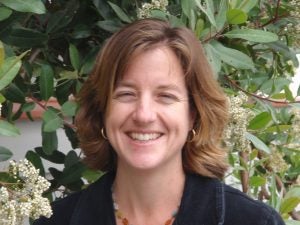 E-mail: yvala@ucdavis.edu
E-mail: yvala@ucdavis.edu
Research: As Forest Advisor, I work to address the needs of forest landowners in the fields of forest management and ecology through research, technical consultations, short-courses and regional conferences. My program emphasis is on redwood and Douglas-fir silviculture, forest policy, education, incentives to improve forest stewardship, watershed management, conservation biology, fuels management and insect and disease management. My research projects have included the early detection and treatment for areas infested with the plant disease known as Sudden Oak Death, surface fuels evaluations, assessment of the 2003 Canoe fire severity, assessment of large woody debris in streams, and assessment of coarse woody debris in forests. I offer frequent workshops and have covered subjects such as forest management, carbon sequestration, biomass opportunities, planning, advanced road restoration, non-timber forest products, tree planting, fuel hazard reduction, Sudden Oak Death awareness and the annual Forestry Institute for Teachers.
Department: USDA- Forest Service, Pacific Southwest Research Station
E-mail: jessicawwright@fs.fed.us
Phone: 530-759-1742
Website: https://www.fs.fed.us/psw/programs/cb/staff/jwright/
Research: I am a Conservation Geneticist focusing on ecological genetic issues. My research examines all aspects of provenance trials- from tree height to transcriptomics.
Department: Plant Sciences
E-mail: tpyoung@ucdavis.edu
Phone: (530) 754-9925
Website: http://tpyoung.ucdavis.edu/
Research: Restoration ecology

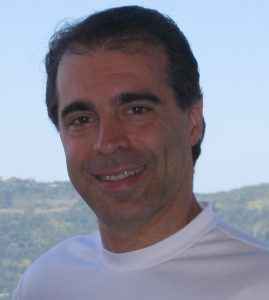 Department: USDA Forest Service
Department: USDA Forest Service